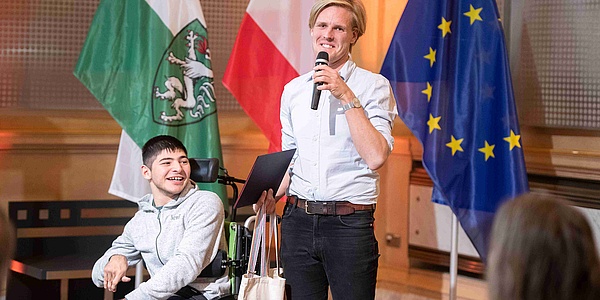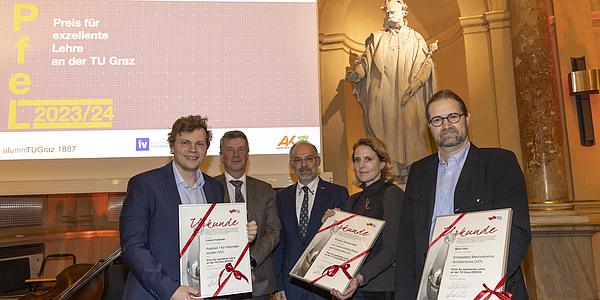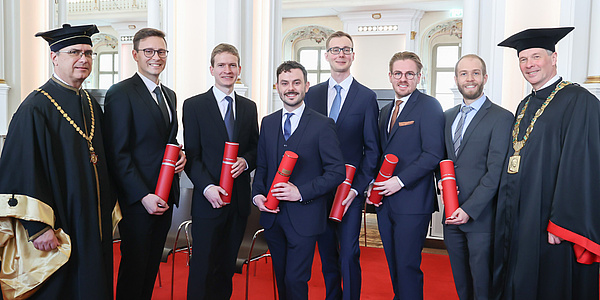Mind_the Gap Awards – Honouring Diversity in Practice
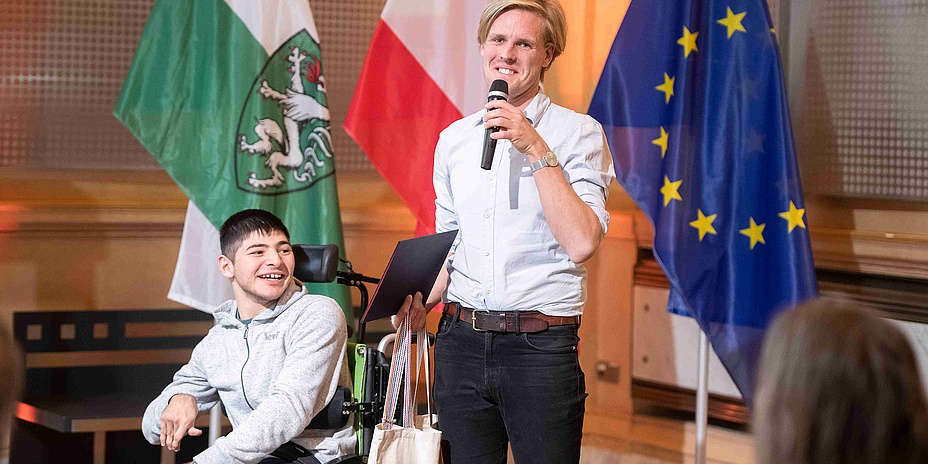
As part of the #DiversityMatters2024 event, Graz University of Technology (TU Graz) presented five Mind_the Gap Diversity Awards for outstanding university work in the areas of diversity, inclusion and equal opportunities. The prizes are endowed with 750 euros for individuals and a maximum of 1,500 euros for team submissions.
The award-winning projects include a master’s thesis on the use of artificial intelligence to give people with severe language impairments an authentic voice, a research project to promote IT skills among young women and a master’s thesis on integrative urban development in the Gries district of Graz. Other award-winning projects include an educational video to raise awareness of barriers for people with physical disabilities in existing buildings and a scheme to visualise pioneering women at TU Graz. The projects show innovative and multi-layered approaches to promoting diversity and equal opportunities in research and teaching.
The awards ceremony also included the presentation of certificates to the ten graduates of the Gender and Diversity Competences for Academics course which TU Graz ran in cooperation with the Gender Workshop for the third time in the 2023/24 academic year.
All information on the Mind_the Gap Diversity Awards can be found on the TU Graz diversity website. The call for entries for the 2025 prize starts on 8 March on the occasion of International Women’s Day.
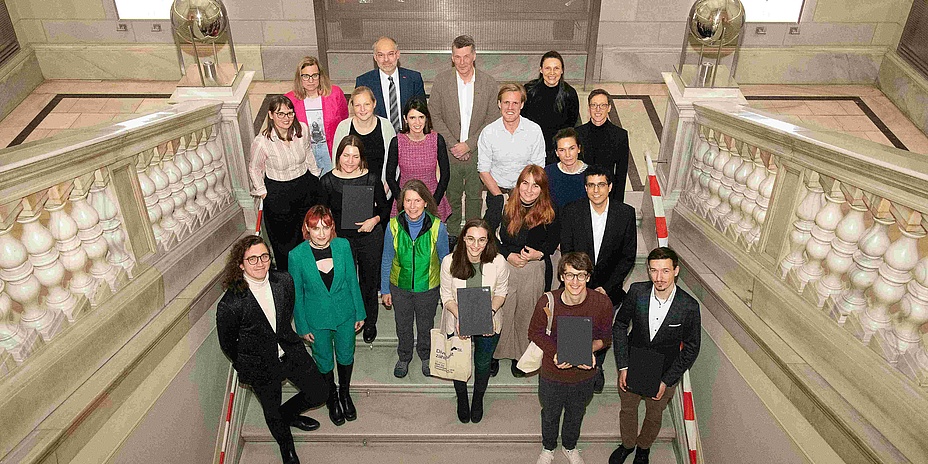
Prizewinners 2024
“Giving disabled people their voice: Suitability of voice cloning for German conversational speech considering privacy aspects”: Master’s thesis by Thomas Moder at the Institute of Interactive Systems and Data Science (ISDS)
In his master’s thesis, Thomas Moder investigates whether AI technology can clone voices in such a way that people with severe speech impairments can have an authentic voice. Moder trained an AI model in German to artificially generate a person’s voice from just a few sounds. The aim was to overcome language barriers and enable social participation in a simple, inexpensive and quick way. Those affected can express their feelings, opinions and needs authentically with their “recreated” voice. The thesis provides an example of how AI technology can be used positively.
Play video
“Stadt gestalten - Nachbarschaftliche Raumproduktion am Beispiel Gries” (Shaping the city – neighbourhood-space production using the example of Gries): Master’s thesis by Lea Schuiki from the Institute of Design in Existing Structures and Architectural Heritage Protection.
In her master’s thesis, Lea Schuiki looks for alternative approaches to urban development in the interests of the common good. She focuses on communal production of space and the equal participation of all population groups. Schuiki analyses the northern Graz district of Gries and identifies existing social structures, deficits and potential. Looking at the socio-spatial dynamics of the neighbourhood forms the basis for inclusive urban development that takes ethnic, cultural and religious differences into account. “It was important to me to raise awareness of the fact that any form of upgrading the neighbourhood, any intervention or innovation has a potential impact on the current residents and that changes entail certain risks – up to and including people being squeezed out,” explains Schuiki.
Play video
“FemQuest: An interactive multiplayer game to engage girls in programming”: research project and publication by Michael Holly, Florian Glawogger, Lisa Habich, Kevin Innerebner and Maria Seiser, Institute of Interactive Systems and Data Science (ISDS).
The research project aims to increase the IT skills of young women and break down gender-specific role models. FemQuest offers a playful team approach to get girls and young women interested in programming. The collaboration with Jugend am Werk enabled a participatory development process to take place. Young women from socially and culturally marginalised groups who were confronted with challenges such as unemployment, dropping out of education, mental health problems or social exclusion took part.
As part of FemQuest, the participants worked together in their own gaming workshops to develop creative solutions for programming tasks in order to make progress in the game. Click here for the FemQuest project website.
Play video
“WomenValue: Pionierinnen feiern – Erinnerungen bauen” (WomenValue: Celebrating pioneers – building memories”: course, competition and exhibition by Ena Kukic, Katharina Mitsche and Tanja Wrodnigg
The aim of the project is to visualise and preserve the legacy of the first women at TU Graz. WomenValue brought together a course organised by the Institute of Construction and Design Principles (KOEN) at TU Graz, a student competition and two university exhibitions with a cross-university initiative by the Alumni Women’s Network to honour the pioneering women of TU Graz. This networked platform resulted in ten design projects, including monument prototypes for pioneering women and a brochure. The models submitted by the students were exhibited in a travelling exhibition at TU Graz in the summer semester of 2024. It is planned to realise the first prize-winning prototype as a permanent installation on the TU Graz campus.
Click here for the booklet on the course “Building memories: Pioneers of TU Graz” with the designs for monuments.
Play video
“Barrieren in Bestandsgebäuden – Beispiel Alte Technik TU Graz”, (Barriers in existing buildings – the example of TU Graz’s Alte Technik): concept for an educational video by Hans Hafellner, Institute of Building Physics, Services and Construction
In his educational video, Hans Hafellner looks at structural barriers in existing buildings for people with temporary and permanent physical disabilities and wheelchair users. In the course of refurbishment measures, particular emphasis is placed on recycling management, sustainability and technical solutions for the future. However, the diversity of the people who use the buildings is often forgotten. The conversion of existing buildings in particular poses major challenges for refurbishment. Possible solutions often conflict with monument protection and cost efficiency. An illustrative video was filmed in the Alte Technik building at Rechbauerstraße 12 to draw attention to the barriers in historic buildings. The aim is to sensitise a broader group of people to the topic including and beyond the students in the civil engineering courses.
Play video
